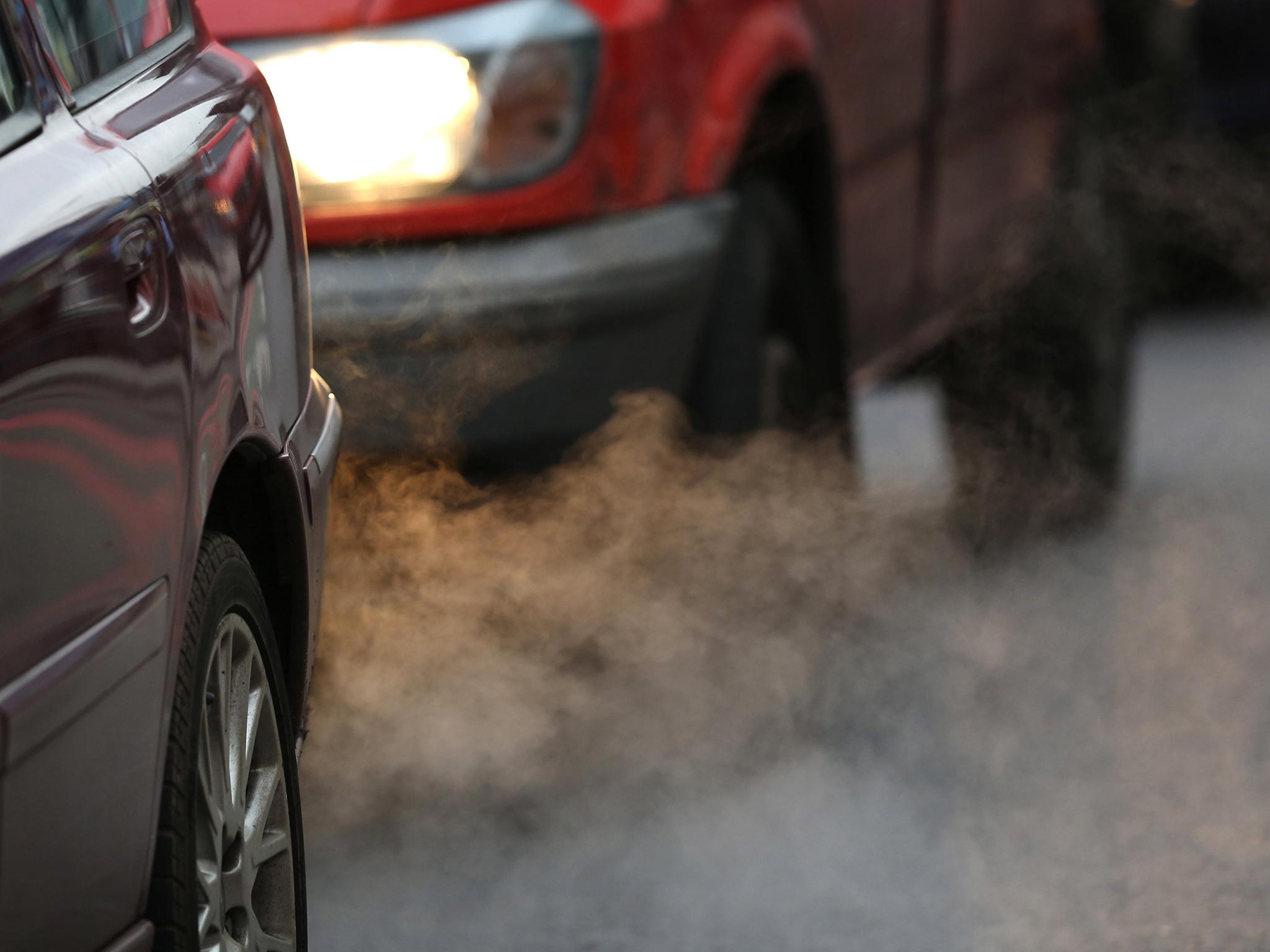UK faces £300m fine over failure to meet air pollution targets by 2010
European Commission to take legal action against Britain over high levels of dangerous gas

Your support helps us to tell the story
From reproductive rights to climate change to Big Tech, The Independent is on the ground when the story is developing. Whether it's investigating the financials of Elon Musk's pro-Trump PAC or producing our latest documentary, 'The A Word', which shines a light on the American women fighting for reproductive rights, we know how important it is to parse out the facts from the messaging.
At such a critical moment in US history, we need reporters on the ground. Your donation allows us to keep sending journalists to speak to both sides of the story.
The Independent is trusted by Americans across the entire political spectrum. And unlike many other quality news outlets, we choose not to lock Americans out of our reporting and analysis with paywalls. We believe quality journalism should be available to everyone, paid for by those who can afford it.
Your support makes all the difference.The UK is facing fines of up to £300m a year over its failure to cut levels of a gas that are believed to cause premature death and affect the growth of children’s lungs.
The European Commission said that it was taking legal action against Britain because it had not come up with a plan to get the amount of nitrogen dioxide – produced mainly by diesel vehicles – below agreed limits.
Campaigners said people had “the right to breathe clean air” and that the UK had some of the highest levels of the gas in Europe.
One expert said attempts to produce cleaner, greener engines appeared to have backfired, leading to an increase in levels of the gas present in the air. It is difficult to assess the full impact of nitrogen dioxide because of its general presence in the air. However, at ground level it is the main cause of ozone, which causes respiratory problems and early death.
Some 29,000 people are known to die prematurely every year from small particles in air pollution, which can cause cancer.
The European Commission said in a statement that governments were supposed to have reduced air pollution to “safe levels” by 2010. An extension was granted for countries “which had a credible and workable plan for meeting air-quality standards within five years of the original deadline” for problem areas, but Britain has failed.

“The UK has not presented any such plan for the zones in question. The Commission is therefore of the opinion that the UK is in breach of its obligations under the directive,” it said.
A “letter of formal notice” of the EC’s intention to take legal action has been sent to the Government, which has two months to respond.
The Supreme Court said last year that air-pollution limits were regularly exceeded in 16 zones across the UK.
It is estimated that most of these zones should hit the target by 2020, but London will only meet the EU standards by 2025, 15-years late.
Nitrogen oxides, including nitrogen dioxide, are produced by road vehicles, shipping, power stations, industry and homes. They cause acid rain, which damages plant and animal life in forests, lakes and rivers, and harms buildings.
The campaign group ClientEarth, which brought last year’s case at the Supreme Court, said poor air quality could cause heart attacks and children living near busy roads in the UK had been shown to grow up with underdeveloped lungs.
“We have the right to breathe clean air and the Government has a legal duty to protect us from air pollution,” James Thornton, ClientEarth’s chief executive, said. “If [Environment Secretary] Owen Paterson wants to avoid another disaster for his department he will need an ambitious plan to protect people from deadly diesel fumes. We need a national network of low emission zones to save lives and make the UK a world leader in clean transport.”
Dr Ben Barratt, a lecturer in air quality at King’s College London, said air quality in the UK was “not good enough”.
He said: “The quality of air in the UK is certainly not as bad as it is in places like Beijing or other parts of China – that’s really in a different league – but poor air quality is having an effect on all of our health, particularly in people who are sensitive to air pollution, such as the young whose lungs are still developing and the old and people with respiratory or cardiovascular problems. There’s no doubt our air quality is causing harm to those people and, in some cases, even ending their lives.”
He added that “some technology introduced to try to make engines clear has actually made the burden of nitrogen dioxide worse”.
A spokesman for the Department for Environment, Food and Rural Affairs said that air quality had “improved significantly in recent decades”.
“Just like for other member states, meeting the nitrogen dioxide limit values alongside busy roads has been a challenge,” he said. “ That is why we are investing heavily in transport measures to improve air quality around busy roads and we are working with the commission to ensure this happens as soon as possible.”
Join our commenting forum
Join thought-provoking conversations, follow other Independent readers and see their replies
Comments